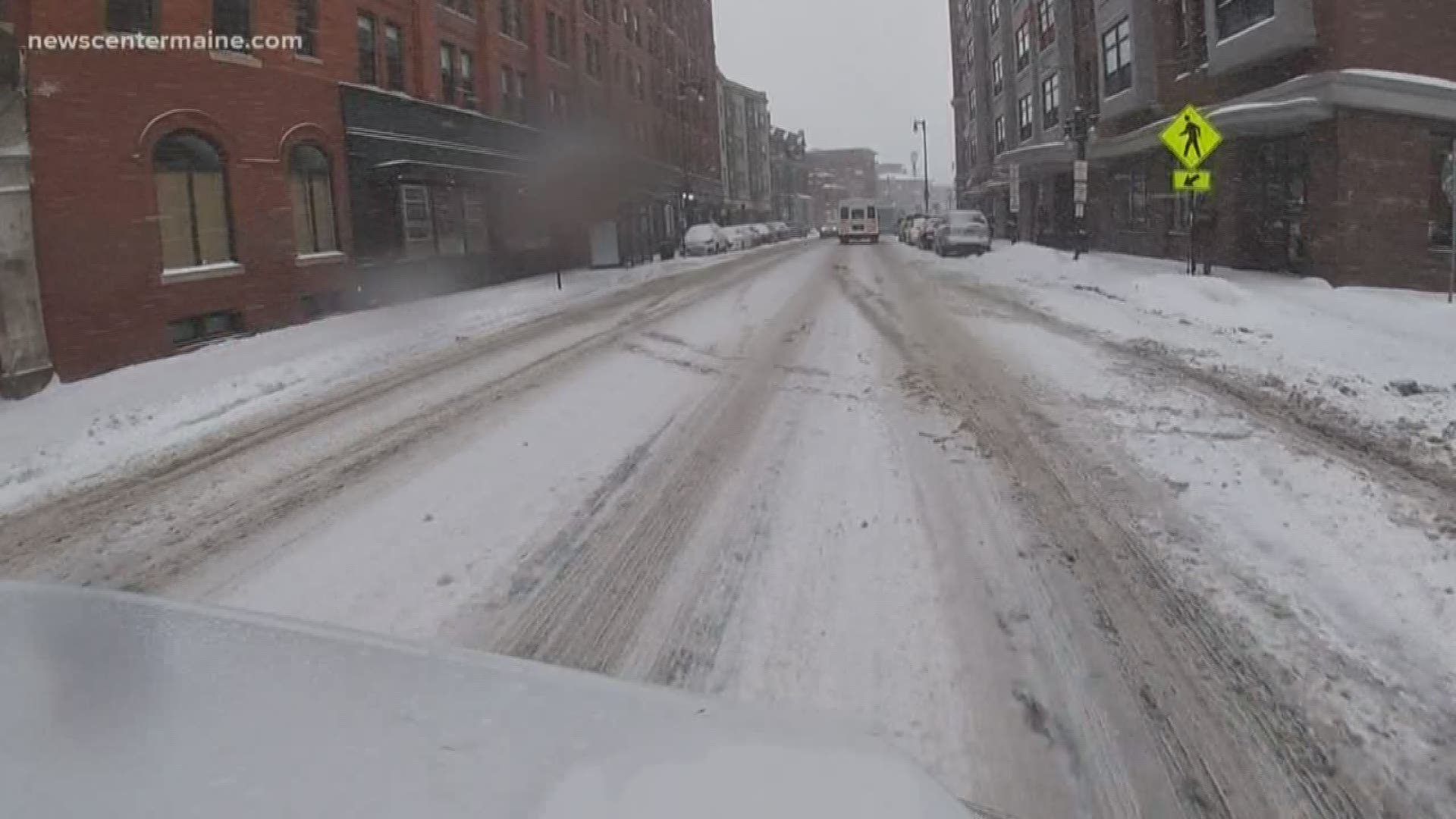AUGUSTA, Maine — Preventing roads from icing over in Winter is a constant battle for MaineDOT.
The department's 400 plow trucks put down between 4,000 to 4,500 tons of salt per snow event. On average, 150,000 to 170,000 tons per year are purchased.
Where the salt comes many Mainers are unaware of. Before the road salt and brine mixture is scattered across highways and state roads, it passes through the Panama Canal on a ship coming from Chile. It arrives at docks in Portland, Searsport, or Portsmouth before it is trucked across the state to sheds.
According to the U.S. Geological Survey National Minerals Information Center, the organization responsible for tracking salt production and use, 2018 domestic production of salt was estimated to have increased by 5% to 42-million tons. Road treatment accounts for 43% of usage.
More salt use leads to a higher chance or rust or corrosion on vehicles.
"Anytime you have an exposed metal and a chloride gets to it along with moisture and oxygen, [there's] going to be a rapid acceleration of corrosion," said Brian Burne, the Highway Maintenance Engineer at MaineDOT. "It's important to keep your cars clean and protected as possible."
Experts recommend getting a car wash after every storm, or at least every ten days in winter to prevent corrosion. Sealing your vehicle's undercarriage is an option for those who want year-round protection from the elements.

